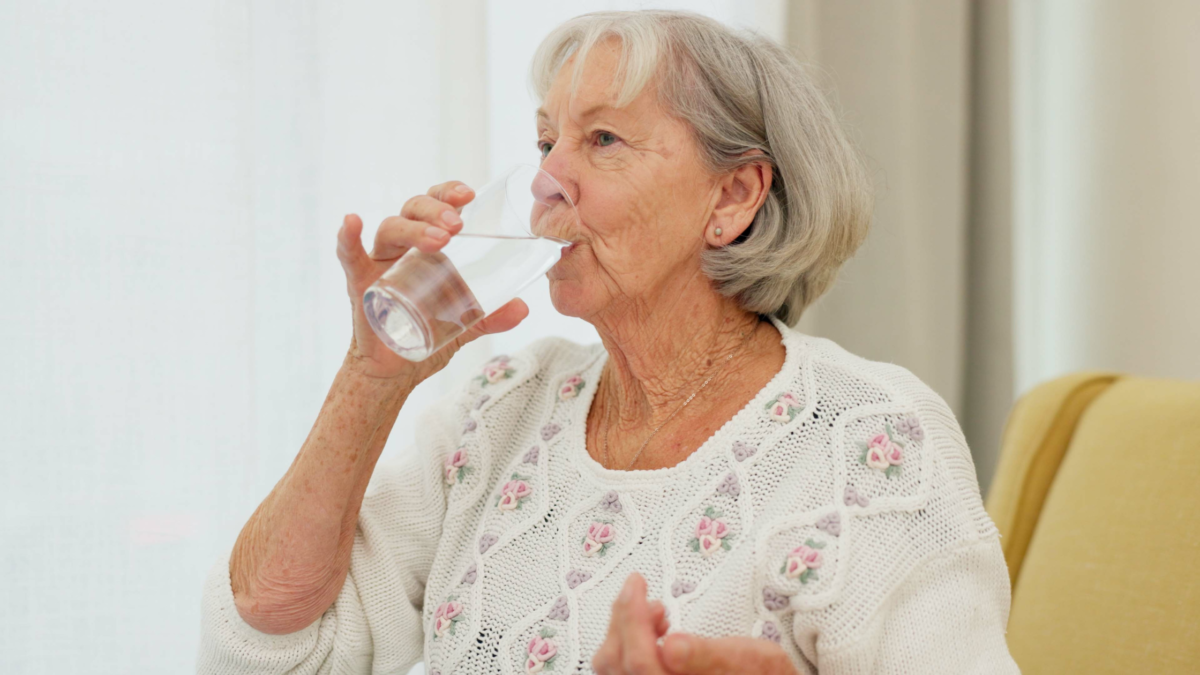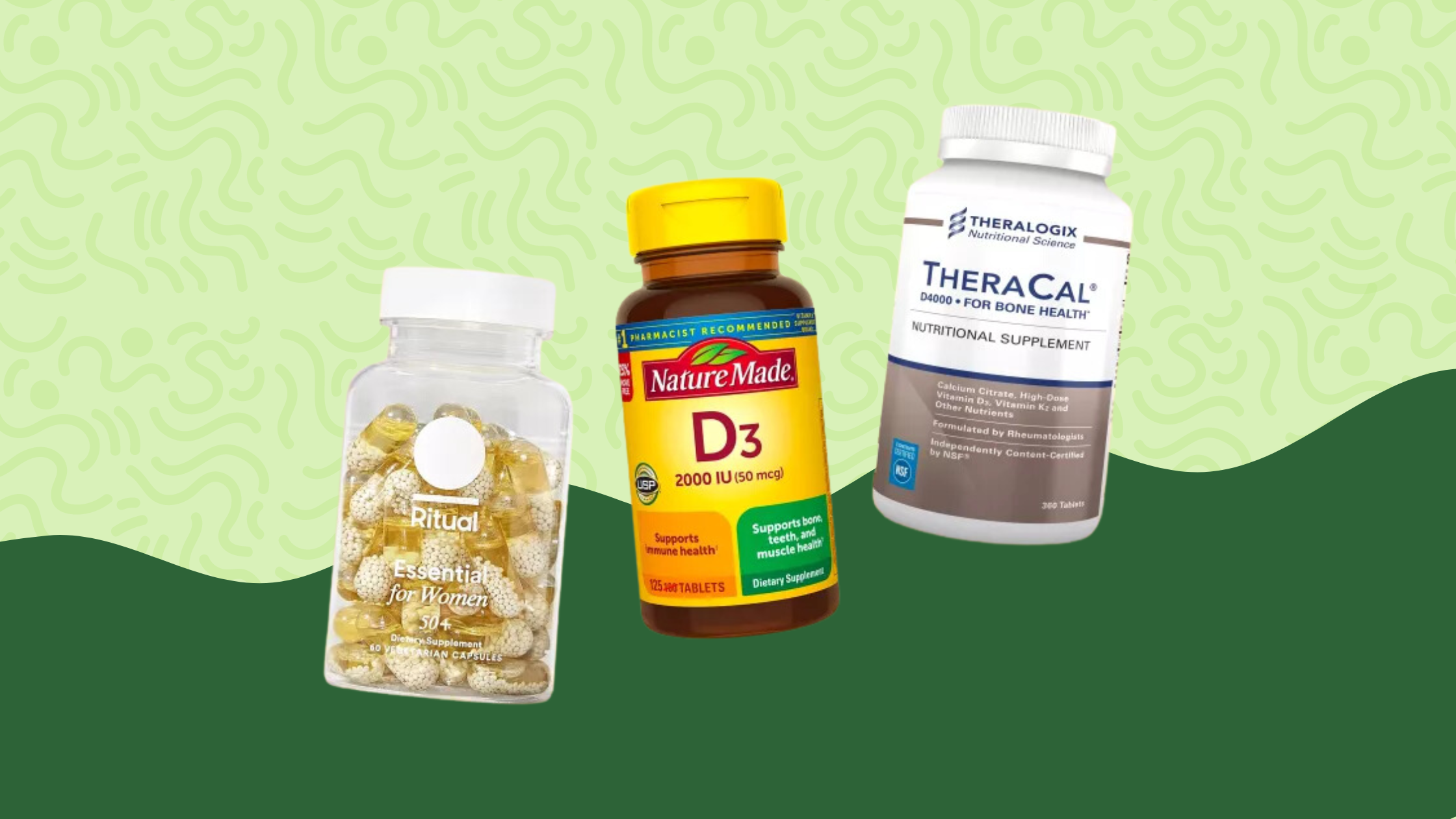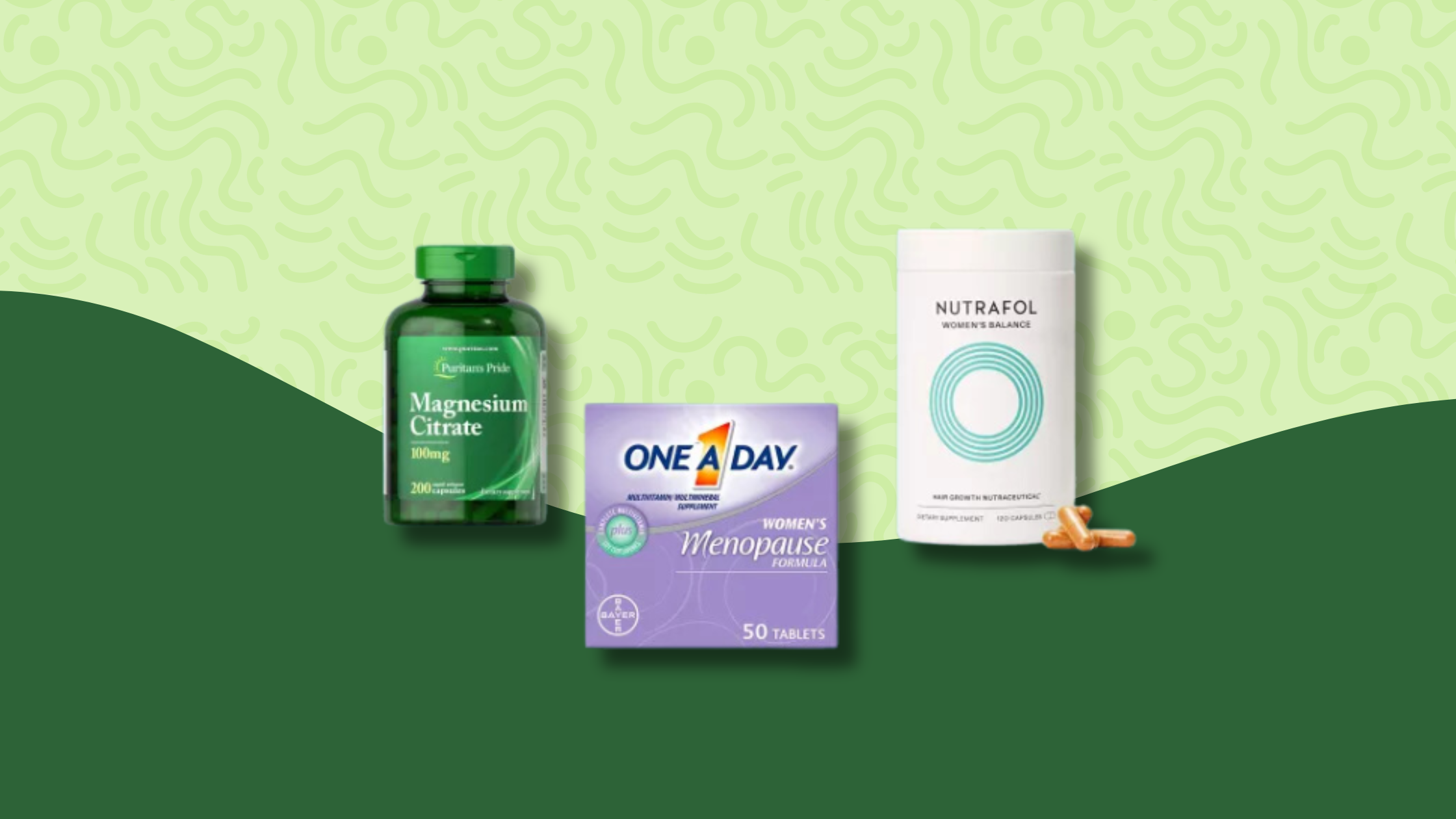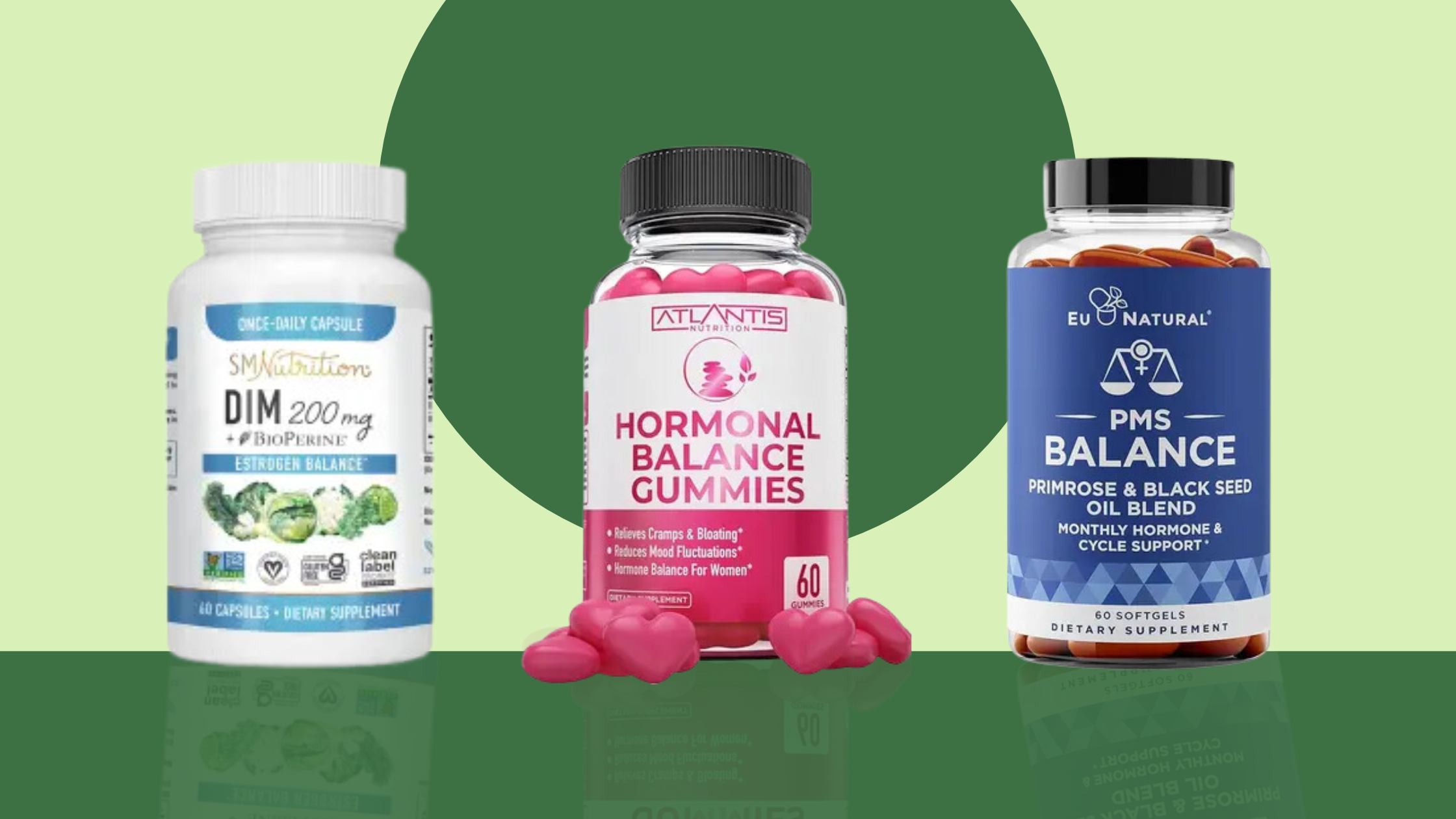What You Should Know About Supplements For Osteoporosis

Medically Reviewed By Margaret Etudo, BPharm. Written By The Vitamins For Woman Team.
Dealing with osteoporosis can be a lot. Sometimes, taking medications can help. But what are things you should know about supplements for osteoporosis?
Table of Contents
The infamous tongue twister, Osteoporosis, is a bone disease that occurs when there is a decrease in your bone’s mineral density and mass decline. As the name implies, your bones become porous and brittle.
So what causes these cracks? Your bone density peaks in the late twenties and begins to diminish around the age of 35. As you get older, your bone degrades quicker than it rebuilds. Excess bone breakdown leads to osteoporosis.
People who have osteoporosis will also deal with complications like poor health, disability, a reduced standard of life and, in severe cases, death. While there is no cure, there are natural treatment supplements for osteoporosis.
In this article, we will be focusing on the supplements for osteoporosis, including natural treatment supplements and vitamins for strong bones.

Supplements for Osteoporosis
Lifestyle changes, such as regular exercise and a healthy diet, can reduce the risk of fractures. However, if your bone density has decreased significantly, lifestyle changes may not be enough.
Vitamins and minerals required to improve bone health are found in most bone-building supplements for osteoporosis. Taking osteoporosis supplements is a great way to replenish nutritional shortages.
Vitamin D
Vitamin D, also known as cholecalciferol or ‘sunshine vitamin’, is a fat-soluble vitamin that your body synthesises when exposed to sunlight.
The recommended daily amount of vitamin D for adults between 50 and 70 is 15 micrograms (mcg). The equivalent in the International Unit (IU) is 600 IU. People aged 71 and over should take 20 mcg (800 IU) daily.
Vitamin D helps to manage osteoporosis by:
- Mineralisation and strengthening of your bones
- Growth and repair of your teeth and bones
- Regulating levels of calcium and phosphorus in your blood
- Enhances absorption of calcium and phosphorus in your intestine, making your bones stronger and denser
Adequate exposure to sunlight is also necessary for you to attain optimal levels of vitamin D. Supplements may be beneficial if you have vitamin D deficiency in this vitamin. You can also eat sardines, eggs, yoghurt, vitamin D-fortified milk and liver, which are rich in vitamin D.
Excessive intake of vitamin D supplements can lead to hypercalcemia, causing symptoms like:
- Nausea
- Vomiting
- Constipation
- Kidney damage
Magnesium
Magnesium is an essential mineral involved in more than 300 bodily functions. About 60% of your body’s magnesium is in your bone tissues.
The recommended daily amount of magnesium is 310-320 milligrams (mg) for women aged 31 and above. Men aged 31 and above should take 400-420 mg daily. If you are pregnant and breastfeeding, your body may require more magnesium.
Magnesium helps manage osteoporosis by:
- Acting as a cofactor for the synthesis and activation of vitamin D
- Aiding calcium absorption
- Increasing bone mineral density
- Promoting bone growth
Magnesium deficiency affects bone by reducing stiffness, increasing osteoclasts (bone-resorbing cells) and decreasing osteoblasts (bone-building cells).
More research is needed on the impact and appropriate dose of magnesium supplements for osteoporosis. You can start by consuming foods that are rich in magnesium. These include bananas, avocados, nuts, whole grains, and spinach.
Boron
Boron is a trace element that plays a vital role in biological functions like calcium metabolism, growth and maintenance of bone tissue.
The recommended daily allowance of boron has not been established. A study of post-menopausal women who took 3 mg of boron daily showed that their kidneys retained more calcium and magnesium. Thus, it is reasonable to consider boron supplements with 1-3 mg of boron. You can also take milk, dried plums, or prunes.
There are currently no clear indicators of the role of boron supplements in maintaining bone health. However, here are some ways that boron can help you manage osteoporosis:
- Boosts bone regeneration
- Aids calcium, phosphorus and magnesium metabolism
- Strengthens connective tissues in the bone matrix
Vitamin K
Vitamin K is a fat-soluble vitamin, popularly known as the blood clotting vitamin. Vitamin K aids in the regulation of calcium and improves bone strength. It exists in two primary forms – K1 (phylloquinone) and K2 (menaquinone phylloquinone). Phylloquinone is the main dietary form of vitamin K found in green leafy vegetables. Your body stores vitamin K in the liver, brain, heart, pancreas and bones.
There’s currently no defined recommended daily amount for vitamin K. The adequate intake for women and men above 18 years is 90 micrograms (mcg) and 120 micrograms (mcg) daily, respectively. You can eat foods like spinach, fermented soybeans, cabbage, and cow liver, which are rich in vitamin K.
Vitamin K helps manage osteoporosis by:
- Acting as the coenzyme in the carboxylation of vitamin K-dependent proteins in the bone
- Regulating markers of osteoblasts and the formation of osteoclasts
- Suppresses bone resorption
Vitamin K deficiency increases the risk of bone fractures and low bone density. More research is needed on the role of vitamin K supplements in osteoporosis and bone health.
Overconsumption of vitamin K is rare. However, it can interfere with blood-thinning medications like Warfarin, leading to blood clotting disorders.
Soy Isoflavones
Soy isoflavones are plant-based antioxidants known as phytoestrogens. Phytoestrogens are structurally similar to estrogen, meaning they can bind to and activate estrogen receptors in your body. The leading cause of osteoporosis in women is menopause. When menopause sets in, your body’s estrogen levels decrease. The decrease in estrogen levels causes your bones to deteriorate quickly.
Research shows that supplements with soy isoflavones help to manage osteoporosis by:
- Maintaining and increasing bone density
- Slowing down the pace of bone turnover
- Preventing the loss of calcium in the bones
A review of the six-month administration of isoflavones to postmenopausal women led to an increase in bone mass density in the spine and a reduction in the markers of osteoblasts.
Consuming 40–110 mg of soy isoflavones daily for at least a year should help prevent osteoporosis. An extensive study will determine how different dosage requirements apply to various ages and ethnic groups.
Calcium
Calcium is the most abundant mineral found in your body. About 99% of your body’s calcium is in your bones and teeth. Ironically, your body can’t make calcium. So, how do you get this calcium which your body depends on? Simple. Through foods and supplements.
The recommended dietary allowance of calcium is 1,000 to 1,200 milligrams (mg) daily. You can get enough calcium from milk and milk by-products, e.g. cheese and yoghurt. Salmon, almonds, and leafy green vegetables like spinach and kale are also excellent sources of calcium.
One of the main ingredients in most bone-building supplements for osteoporosis is calcium. Calcium supplements may be suitable for people who are calcium deficient. They may even improve bone mass density and reduce the likelihood of osteoporosis and fractures caused by osteoporosis.
What To Know About Calcium
There is not enough data to recommend calcium supplements for osteoporosis. While some studies suggest a 15-30% reduction in fracture risk for middle-aged and older people who take calcium combined with vitamin D, others haven’t found a similar benefit.
Beyond the differences in research, concerns surround the safety of excessive calcium intake through supplements. Note that overconsumption can lead to constipation, digestive issues, and even an increased risk of kidney stones and heart attack.
You can focus on eating a calcium-rich diet to meet the recommended dietary allowance without taking too much calcium. Feel free to consult your doctor to confirm the right dosage of calcium supplements for osteoporosis.
Zinc
Zinc is an essential mineral needed for the normal growth of your skeleton and bone homeostasis. Zinc also acts as a co-factor for alkaline phosphatase and aids bone mineralisation
Zinc supplements manage osteoporosis by:
- Promoting bone regeneration
- Inhibiting the activity of osteoclasts
- Boosts the function of osteoblasts
Taking zinc in sufficient amounts via a diet or supplements may support bone health. The richest food sources of zinc are oysters, fish and meat.
Selenium
Selenium is a trace mineral with antioxidant properties and is present in bones. Your bones contain about 16% selenium, the second highest in your body.
Another part of your body containing selenium is your skeletal muscles. They have been shown to have about 27.5% selenium. Selenium deficiency is linked to low bone mass density, leading to bone damage. However, the association between selenium and bone health in humans is a bit controversial.
Copper
Copper helps calcium and other minerals attach to the protein structure that makes up your bones. About two-thirds of your body’s copper is in the muscles and skeleton. The recommended daily allowance of copper is 0.9 milligrams mg daily.
Dietary copper intake among women with or without osteoporosis did not make a difference. Human studies on copper supplements for osteoporosis are scarce and inconsistent.
Manganese
Manganese is a trace element critical for many physiological and biological processes, including bone growth. Some previous research showed that women with osteoporosis have lower serum manganese levels than women with normal bone mineral density.
The link between manganese and bone loss is debatable. Hence, more research is needed to examine the role of manganese supplements in osteoporosis.
Silicon
Silicon is found in trace amounts in your bones, cartilage and connective tissues like hair, nails, tendons, and skin.
Studies in rats show that silicon improves calcium incorporation in bones compared to those deficient in silicon. Evidence over the last 30 years suggests that silicon plays an important role in bone formation and health.
Unfortunately, there is no recent research on silicon supplements and osteoporosis in humans.
Other ways to manage osteoporosis
Aside from taking vitamins for strong bones, there are other ways to manage osteoporosis. This may include:
- Exercise regularly
- Incorporate osteoporosis-safe exercises like hiking, walking, yoga stretches, pilates, etc
- Eat more foods that are rich in vitamins for strong bones, including milk, cheese, eggs and leafy green vegetables
- Reduce alcohol and caffeine consumption
- Avoid smoking tobacco cigarettes
- Take the supplements and medications as prescribed by your doctor
When to visit a doctor
Osteoporosis often happens slowly. However, certain risk factors increase your likelihood of developing it. These factors include:
- Age
- Gender: Women are more likely to get osteoporosis because they have a lower peak bone mass and smaller bones than men.
- Low estrogen and testosterone levels
- Family history
- A low protein, calcium, and vitamin D diet
- Lifestyle changes like smoking and drinking alcohol
- Underlying medical conditions like Gastrointestinal diseases, Rheumatoid arthritis, and certain types of cancer
Taking some medications for a long time can also cause osteoporosis. Some of them include:
- Glucocorticoids and adrenocorticotropic hormones for asthma and rheumatoid arthritis.
- Antiepileptic medicines for seizures
- Cancer medications
- Thiazolidinediones for type 2 diabetes
If you identify any risk factors or notice any bone pain, especially after a minor fall or accident, you should see your doctor. They may use a DEXA scan to measure your bone mineral density and tell if you have osteoporosis or not.
Frequently Asked Questions
Calcium and vitamin D are the best, most essential vitamins for strong bones. They both play a significant role in bone health. Vitamin D helps your body to absorb more calcium. Calcium increases the strength and structure of your bones.
Women are more likely to get osteoporosis because they have a lower peak bone mass and smaller bones than men. Also, menopause is one of the leading causes of osteoporosis in women. Estrogen helps to maintain bone density. Sadly, estrogen levels decrease when menopause sets in, causing the bones to deteriorate quickly.
You can take supplements for osteoporosis after you have spoken to your doctor. Ask your doctor for more information on medication interactions with bone supplements. Consider including the best foods for osteoporosis in your diet before taking bone supplements.
Final Thoughts For You
Osteoporosis is a severe bone condition that should be managed properly if you want to maintain healthy bones.
Bone supplements can help, but you need to speak to your doctor first. Your doctor will recommend a personalised plan that includes supplements for osteoporosis, diet, and strength-training exercises.
Remember to eat a balanced diet rich in vitamins for strong bones, like calcium and vitamin D. Limiting alcohol and tobacco intake may also help. Early detection is key. Inform your doctor if you notice any of the risk factors.
- Chen LR, Hou PH, Chen KH. Nutritional support and physical modalities for people with osteoporosis: current opinion. Nutrients. 2019;11(12):2848.
- National Institute of Health. Office of dietary supplements – vitamin D.
- Rondanelli M, Faliva MA, Tartara A, et al. An update on magnesium and bone health. Biometals. 2021;34(4):715-736.
- Boyce BF, Yao Z, Xing L. Osteoclasts have multiple roles in bone in addition to bone resorption. Crit Rev Eukaryot Gene Expr. 2009;19(3):171-180.
- Henry JP, Bordoni B. Histology, osteoblasts. In: StatPearls. StatPearls Publishing; 2024.
- Price CT, Langford JR, Liporace FA. Essential nutrients for bone health and a review of their availability in the average North American diet. Open Orthop J. 2012;6:143-149.
- National Institute of Health. Office of dietary supplements – vitamin K.
- Iwamoto J. Vitamin k2 therapy for postmenopausal osteoporosis. Nutrients. 2014;6(5):1971-1980.

medically reviewed by margaret etudo, BPharm. written by the vitamins for woman team.





hey, was reading bout the supplements and was wonderin if too much vitamin D is a thing? Worried might go overboard with it.
Yeah, it’s possible. Too much Vitamin D can cause problems, like hypercalcemia. Always best to check with a doc before starting any new supplement.
Definitely gotta balance it out. More ain’t always better, especially with vitamins.
Fascinating read on how magnesium plays a role in bone health. Never realized our bodies were so dependent on minerals.
if i drink milk am i immune to osteoporosis lol, asking for a friend
Loved the article, very informative. I’m always looking for natural ways to improve health, and this gives me a lot of ideas for my diet.
While the article highlights important vitamins and minerals, it’s crucial to note that supplementation should not replace a balanced diet. Absorption rates can significantly differ.
not sure why everyone’s so hyped about supplements. isn’t it better to just eat healthy? seems like a lazy way out.
Eating healthy is key, but for some, supplements are necessary to address specific deficiencies. It’s not about being lazy, but ensuring nutritional needs are met.
Great, another pill to pop. Because who needs real food when you have a pharmacy in your kitchen, right?
It’s intriguing to reflect on how our ancestors managed without such a vast array of supplements. Makes one ponder the natural resilience of the human body and the role of diet through the ages.
so i gotta ask, does taking like a bunch of these actually make a diff or is it just like plans fitness tells u to do lol
Taking supplements can help, but it’s more about the combo of good nutrition, exercise, and the right supps. No magic pills out here, gotta put in the work too.
[…] possibility of developing osteoporosis, a condition that weakens bones and causes them to break easily, depends on how much bone mass you […]
[…] bones become more brittle and weaker as we age, which may lead to osteoporosis and rickets. However, the right balanced diet contains nutrients that can build and strengthen your […]
[…] will cause a decrease in bone density, which leads to bone loss and increased risk of fractures and osteoporosis. Getting enough vitamin D supplementation also helps prevent mental and physical fatigue in older […]
[…] is one of the leading causes of osteoporosis in women. Estrogen helps to maintain bone density. Sadly, bone mass density depletes as estrogen […]
[…] Hot flashes, also known as hot flushes, are sudden feelings of intense internal heat and sweating that can happen at any time. Due to the change in the dilation of your blood vessels, they also cause flushing, anxiety, and chills. Hot flashes not only disrupt your sleep patterns but are associated with an increased risk of type 2 diabetes mellitus and osteoporosis. […]
[…] Osteoporosis is a significant health concern for women, particularly post-menopausal women who experience a decrease in bone weight. This condition often leads to painful fractures and a decrease in mobility, significantly affecting your daily life. […]
[…] is no specific supplement that is best suitable for osteoporosis as it depends on your individual needs. However, the two most essential nutrients for people with […]
Thanks for sharing. I read many of your blog posts, cool, your blog is very good.
[…] improves total body bone mineral density. Magnesium deficiency increases the risk of bone loss, osteoporosis and […]
Your article helped me a lot, is there any more related content? Thanks!
I don’t think the title of your article matches the content lol. Just kidding, mainly because I had some doubts after reading the article.